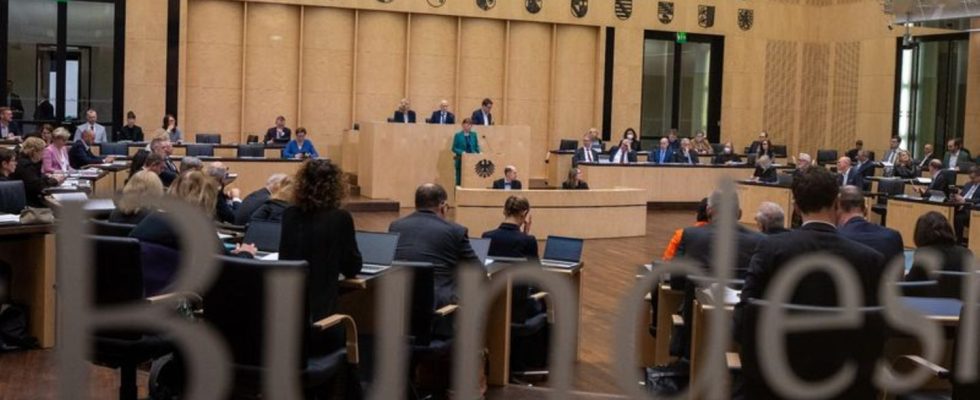Western Balkan states
Federal Council advocates EU expansion
View into the plenary hall during the meeting in the Federal Council. photo
© Michael Kappeler/dpa
The EU has decided to start accession negotiations with Ukraine and Moldova. The Federal Council supports this decision – and puts Moldova on the list of safe countries of origin.
The Federal Council has supported EU membership negotiations with Ukraine, the Republic of Moldova and states in the Western Balkans. “In view of global developments, enlargement is in the geopolitical self-interest of the European Union,” it said in a statement.
“History shows that previous enlargements have made the European Union stronger,” said Bremen’s Prime Minister Andreas Bovenschulte (SPD). Even if the focus is currently on Ukraine, the countries of the Western Balkans, some of which have been trying to be accepted for 20 years, should not be forgotten. The Western Balkan states include Serbia, Montenegro and North Macedonia.
Hesse’s Federal and European Minister Lucia Puttrich (CDU) emphasized that it was about reaching out to millions of people in Eastern and Southeastern Europe. Joining the EU can no longer be justified solely by economic motives.
“It is joining a family of values. A family that promises security, prosperity and peace.” However, there cannot be any special conditions for the countries wishing to join; they must meet the requirements for admission. It is the responsibility of the candidates to “start the reform turbo now,” said North Rhine-Westphalia’s Federal and European Minister Nathanael Liminiski (CDU).
Moldova and Georgia as safe countries of origin
The Federal Council also agreed to classify Moldova and Georgia as safe countries of origin. The Bundestag’s proposal achieved the necessary majority in the state chamber. The move is intended to limit the increasing number of asylum seekers. The recognition rate for asylum seekers from the two former Soviet republics was less than 0.1 percent in the first half of the year.
Federal Interior Minister Nancy Faeser (SPD) is traveling to the Georgian capital Tbilisi next Monday. As a spokesman for her ministry in Berlin announced, her visit was, among other things, about a migration agreement. It is intended to make deportations to Georgia easier and to simplify the entry of Georgians into Germany for employment purposes.
Safe countries of origin are those in which it is assumed that there is generally neither persecution nor inhumane or degrading treatment and that the foreigner concerned is therefore not at risk of serious harm in his or her home country. This makes it easier for an asylum application to be rejected. In addition, an asylum application does not have a suspensive effect.
This means that those affected can sue in court against a negative decision from the Federal Office for Migration and Refugees, but then have to wait for the outcome of the procedure abroad. So far this applies to the countries of the European Union as well as to Ghana, Senegal, Bosnia and Herzegovina, Serbia, North Macedonia, Albania, Kosovo and Montenegro.
Thuringia’s Prime Minister, Bodo Ramelow, criticized the expansion of the list in detail and explained why he would not agree. Designating more and more countries as safe countries of origin is “unfortunately not a sensible path” that can be maintained in the long term, said the left-wing politician. It would be more important to get states like Morocco, Tunisia and Algeria to cooperate better in identifying and taking back their citizens who are obliged to leave the country.
Although the majority of the Greens do not believe in the instrument of safe countries of origin, this time they have shown themselves willing to compromise – also because those from Moldova and Georgia who are actually being persecuted have the opportunity to enter Germany due to the visa exemption.

